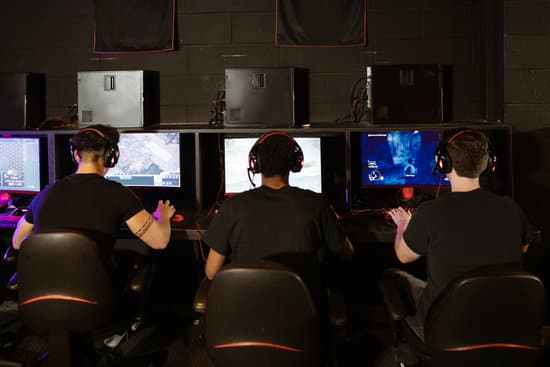Introduction to video games and their history
Video games have come a long way since the pixelated adventures of the 1970s and 80s. From simple arcade machines to sprawling open-world experiences, gaming has evolved into a multi-billion dollar industry that captivates millions worldwide. Today, video games are not just entertainment; they’re cultural phenomena that shape our society in unexpected ways.
As we dive deeper into this digital landscape, it’s essential to understand how video games influence everything from art and music to social interactions and mental health. Whether you’re an avid gamer or simply curious about the phenomenon, there’s no denying that video games are more than just pixels on a screen—they’re a powerful force in modern culture. Let’s explore how they’ve changed our lives for better or worse while looking ahead at what the future might hold for this dynamic medium.
The growth of the gaming industry
The gaming industry has exploded over the past few decades. Once a niche hobby, it now rivals Hollywood in revenue and cultural influence.
From simple pixelated games to stunning virtual realities, the evolution has been rapid and astonishing. Gamers today experience immersive worlds that were once only dreams of tech enthusiasts.
Mobile gaming has also revolutionized access to video games. With smartphones in nearly every pocket, casual gamers can easily dive into their favorite titles anytime and anywhere.
E-sports have added another layer of growth. Competitive gaming attracts millions of viewers online and fills stadiums worldwide. The passion for watching skilled players compete elevates video games from mere entertainment to a spectator sport.
As technology advances, so do opportunities within this sector—from indie developers to major studios—ensuring that innovation remains at the forefront as new generations embrace interactive storytelling like never before.
Impact on popular culture
Video games have transcended their original purpose, becoming a cornerstone of popular culture. Characters like Mario and Sonic the Hedgehog are now household names, recognized even by those who don’t play games.
Their influence extends beyond the screen into music, fashion, and art. Game soundtracks often top charts, while merchandise featuring iconic game imagery is everywhere—from clothing lines to collectibles.
Cinematic adaptations of video games have gained momentum too. Films based on franchises like “Tomb Raider” and “The Witcher” showcase how narratives from gaming resonate with broader audiences.
Social media platforms buzz with gaming content daily—streamers attract millions of followers eager for new gameplay experiences. This interaction fosters community engagement that traditional entertainment forms struggle to replicate.
As video games continue to evolve, they will likely shape trends in storytelling and creativity across various mediums even further.
Positive effects of video games
Video games often get a bad rap, but they can be beneficial in various ways. For starters, many games enhance cognitive skills. Players frequently engage in problem-solving and strategic thinking as they navigate complex challenges.
Moreover, video games foster social connections. Multiplayer experiences allow friends and strangers to collaborate or compete, building friendships across distances that might otherwise keep people apart.
They also serve as an excellent tool for stress relief. Immersing oneself in a virtual world can provide an escape from daily pressures while offering moments of joy and excitement.
Additionally, certain educational games promote learning by making it interactive and enjoyable. Subjects like math and science become more engaging when presented through gameplay dynamics.
Video gaming encourages creativity. Players often find themselves immersed in storytelling or designing their own worlds, sparking imagination in ways traditional media may not achieve.
Negative effects of video games
While video games can offer numerous benefits, they also come with a set of challenges that can’t be ignored. One major concern is the potential for addiction. Players can easily lose track of time, neglecting responsibilities and relationships in the process.
Excessive gaming may lead to physical health issues as well. Prolonged hours spent in front of screens can result in eye strain, poor posture, and even obesity due to lack of physical activity.
Moreover, some studies suggest a correlation between violent video games and aggressive behavior. This remains hotly debated but raises questions about how immersive experiences might desensitize players to real-world violence.
Social isolation is another issue worth mentioning. While online multiplayer games create virtual communities, they might replace face-to-face interactions rather than enhance them. As gamers invest more time into digital worlds, their connection to reality could weaken significantly.
Controversies surrounding video games
Video games often spark heated debates within society. One of the most prominent controversies revolves around violence in gaming. Critics argue that immersive experiences can desensitize players to real-world aggression, raising concerns about behavioral implications.
Another contentious issue is addiction. Many worry that excessive gameplay impacts mental health and social interactions, especially among youth. This has led to discussions about whether gaming should be classified as a disorder.
Moreover, representation in video games also stirs up conversation. Diverse characters and narratives have made strides, yet many feel there’s still progress needed regarding inclusivity and stereotypes.
Loot boxes and microtransactions face scrutiny for their resemblance to gambling. Parents are increasingly cautious as these practices become commonplace in titles aimed at younger audiences. The ongoing dialogues reflect our complex relationship with this evolving medium.
The future of gaming and its potential impact on society
The future of gaming is bursting with possibilities. As technology advances, virtual reality and augmented reality are set to revolutionize the way we play. Imagine stepping into your favorite game world, feeling every thrill as if it were real.
Social connections through gaming will continue to deepen. Players from different corners of the globe can join forces or compete fiercely in a shared digital landscape. This fosters not just friendships but also cultural exchanges that enrich our lives.
In education, gamification is transforming traditional learning methods. Interactive lessons make complex subjects more engaging and accessible for learners of all ages.
However, ethical considerations loom large as well. The potential for addiction and data privacy issues must be addressed to ensure a positive experience for all users.
As gaming evolves, its influence on creativity, communication, and even mental health will shape societal norms in ways we’ve yet to fully grasp.
Conclusion
Video games have become an integral part of our lives. From their humble beginnings to the multibillion-dollar industry they represent today, gaming has transformed how we interact with technology and each other. They influence everything from art and music to fashion and language.
The conversations around video games continue to evolve. While there are valid concerns about addiction or violence in some titles, many argue that these issues often overshadow the positive benefits gaming can offer, such as improved cognitive skills and social connections.
As we look ahead, the potential for video games to shape society is immense. Innovations in virtual reality and augmented reality could redefine entertainment experiences further while fostering community engagement on a global scale.
With each passing year, it becomes increasingly clear that video games aren’t just a pastime; they’re a cultural phenomenon that reflects our changing world. The impact they have will likely resonate well into the future, influencing generations yet unborn.




